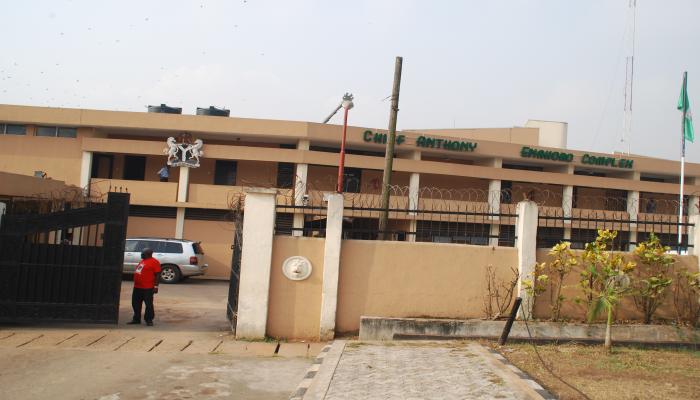The Edo State House of Assembly convened a plenary session on Wednesday, February 19th, 2024, during which significant decisions impacting political appointments, security measures, and road infrastructure development were made. Speaker Blessing Agbebaku announced the collective decision of the 24-member House to terminate the appointments of all political aides attached to the Assembly members. This encompassed roles such as Special Advisers (SAs) and Senior Special Advisers (SSAs), among others, who had been appointed upon the inauguration of the Eighth Assembly in June 2023. While the Speaker indicated that future actions regarding these positions would be determined in subsequent meetings, he assured that the affected appointees would receive their February salaries. This move signals a potential shift in the Assembly’s internal staffing structure and raises questions about the future direction of political appointments within the legislative body.
The Assembly’s focus extended beyond internal affairs to address pressing security concerns within the state. A resolution was passed urging the immediate transfer of security personnel who have been stationed in a single locality for five years or more. This action stemmed from a motion presented by Osezua Ojezele, representing Esan South-East Constituency, who highlighted the escalating threat posed by criminal herdsmen in the Ubiaja region. The resolution aims to enhance security effectiveness by introducing fresh perspectives and preventing potential complacency or undue influence that might arise from prolonged deployment in a specific area. Furthermore, the resolution mandated that traditional rulers must reside within their respective communities, a measure intended to strengthen local governance and improve responsiveness to security challenges.
In parallel to addressing security concerns, the Assembly prioritized the development and maintenance of the state’s road infrastructure. Two crucial bills were passed during the plenary session, demonstrating a commitment to improving transportation networks across Edo State. The first bill established the State Roads Funds and the Edo State Roads Funds Board and Administration. This newly established entity will be responsible for securing and managing funds dedicated to the planning, development, rehabilitation, construction, and maintenance of Class C and Class D roads, as well as the rehabilitation of Class B roads within the state. This focused approach aims to streamline funding and management processes, ensuring efficient allocation of resources for road infrastructure improvements.
The second bill passed by the Assembly focused on the establishment of the Edo Rural Access Road Agency. This agency is tasked with the comprehensive management, development, rehabilitation, reconstruction, and maintenance of Class C and D roads throughout the state. These roads play a critical role in connecting rural communities to urban centers and facilitating economic activities. The creation of a dedicated agency signifies a commitment to improving rural access and addressing the specific challenges related to the maintenance and development of these vital transportation arteries. By prioritizing Class C and D roads, the Edo State government aims to improve connectivity and stimulate economic growth in rural areas.
The establishment of the Edo Rural Access Road Agency reinforces the government’s commitment to improving rural accessibility and facilitating economic development in these often-underserved areas. This agency will provide a dedicated structure and resources to address the unique challenges associated with maintaining rural roads and ensuring their ongoing functionality. By concentrating on these specific road classifications, the government can target investments where they are most needed, promoting overall connectivity and supporting the livelihoods of rural communities.
Taken together, the actions taken by the Edo State House of Assembly during this plenary session signify a broad focus on addressing key issues facing the state. From internal restructuring of political appointments to tackling security concerns and bolstering road infrastructure, the Assembly demonstrated a proactive approach to governance. The establishment of dedicated agencies for road management underscores a commitment to long-term planning and sustainable development, ensuring that Edo State’s transportation network remains robust and efficient for the benefit of all its citizens. The decisions made during this session represent crucial steps towards improving the lives of Edo State residents and fostering sustainable growth across the region.


